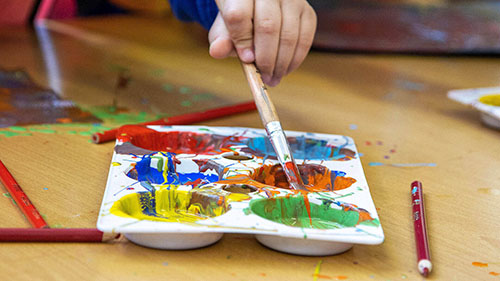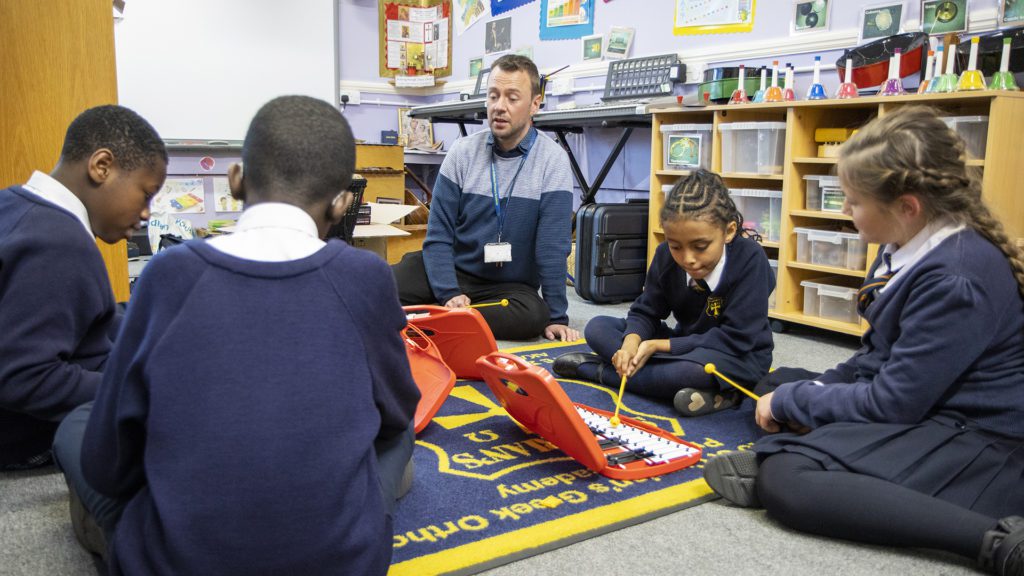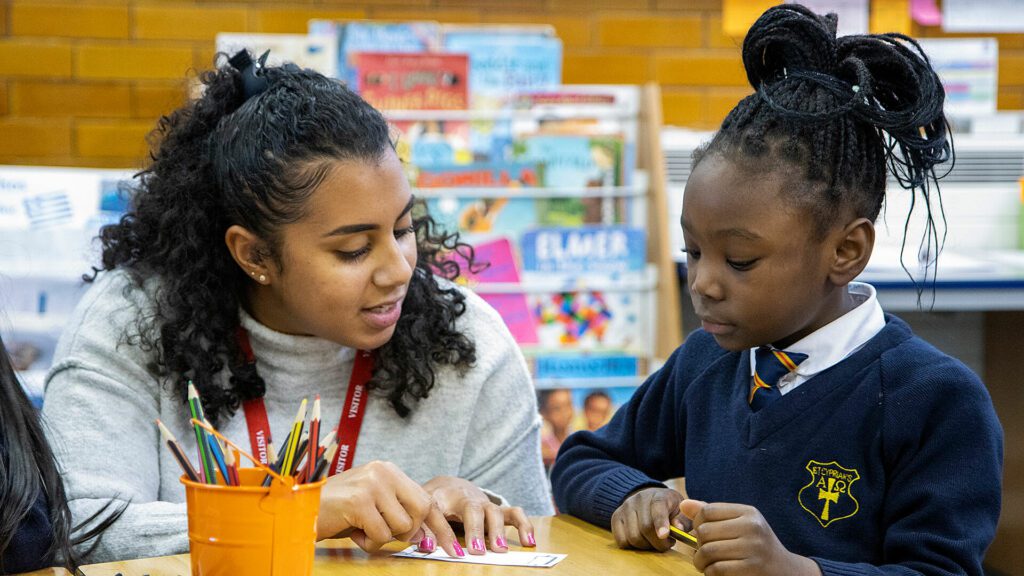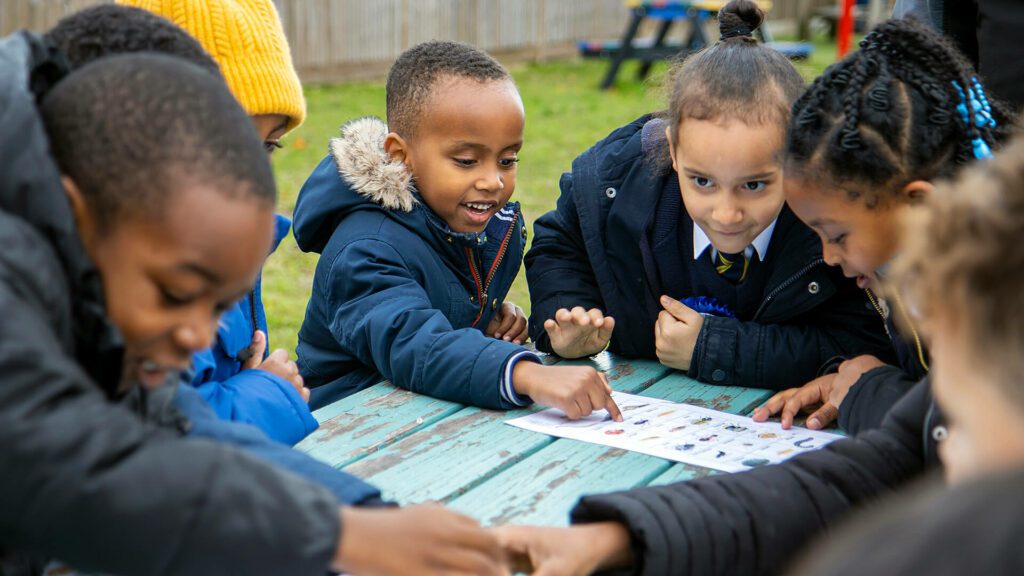PUPIL PREMIUM




Pupil premium strategy statement 2023-2024
This statement details our school’s use of pupil premium (and recovery premium) funding to help improve the attainment of our disadvantaged pupils.
It outlines our pupil premium strategy, how we intend to spend the funding in this academic year and the outcomes for disadvantaged pupils last academic year.
School overview
| Detail | Data |
| School name | St Cyprians Primary Academy |
| Number of pupils in school | 324 |
| Proportion (%) of pupil premium eligible pupils | 16% |
| Academic year/years that our current pupil premium strategy plan covers (3 year plans are recommended) | 2022 - 2023
2023 - 2024 2024 - 2025 |
| Date this statement was published | September 2023 |
| Date on which it will be reviewed | July 2024 |
| Statement authorised by | |
| Pupil premium lead | Mrs Angelina Adrien |
| Governor / Trustee lead |
Funding overview
| Detail | Amount |
| Pupil premium funding allocation this academic year | £96030 |
| Recovery premium funding allocation this academic year | £0 |
| Pupil premium (and recovery premium*) funding carried forward from previous years (enter £0 if not applicable)
*Recovery premium received in academic year 2021 to 2022 can be carried forward to academic year 2022 to 2023. Recovery premium received in academic year 2022 to 2023 cannot be carried forward to 2023 to 2024. |
£0 |
| Total budget for this academic year
If your school is an academy in a trust that pools this funding, state the amount available to your school this academic year |
£96030 |
Part A: Pupil premium strategy plan
Statement of intent
| At St Cyprians Primary Academy all members of staff and governors accept responsibility for all pupils recognising that a number of pupils within the school population, some of whom are not eligible for pupil premium funding, may at any point during their school career require additional support and intervention. We are committed to meeting our pupils’ pastoral, social and academic needs in a nurturing environment. As with every child in our care, a child who is in receipt of the pupil premium is valued, respected and entitled to develop to their full potential.
Through quality first teaching and increased opportunities for reinforcement of learning both within school and in partnership with home, children will make strong progress in reading, writing and maths as well as the wider curriculum. The ultimate objectives for our pupils who are in receipt of pupil premium are: To ensure the attendance of pupils in receipt of pupil premium is at least in line with those of peers in school. We know that children learn best when they attend school regularly. However, the attendance of the pupil premium group is lower than the attendance of those not in receipt of pupil premium. In our strategy we focus on encouraging attendance through meeting the well-being needs of pupils and families, by providing exciting learning including access to outdoor learning and forest schools, and through actively engaging with family to encourage and support good attendance in school. To continue to ensure the outcomes for pupils in receipt of pupil premium are at least in line with those of peers in school across the curriculum. Almost 18% of our pupils in receipt of pupil premium have identified special educational needs. In all cases we strive to ensure all our pupils make excellent progress. We believe that all our pupils benefit from high quality teaching every day and we ensure our strategy provides for this with further additional intervention through one to one and small group teaching. We have accessed this using our current staff in school. We have recently identified a small group of pupils who are not making the progress we would expect, despite specific intervention, and so our strategy for 2022-2025 focuses on the needs of this group. We are working to ensure high aspiration and high-quality provision for all pupils in receipt of pupil premium. Ensure the well-being needs of all pupils in receipt of pupil premium funding are met to ensure they are on track to make or exceed expected progress and attainment. At St Cyprians we know children must be ready to learn by ensuring their personal, social, emotional and developmental needs are met. This has been particularly evident for children on entry to EYFS. We have established a successful induction programme which is now embedded in school. Lockdown has seen an increase in pupils’ emotional and social needs that impact on learning with increases in both pupil and adult mental health and wellbeing needs. |
Challenges
This details the key challenges to achievement that we have identified among our disadvantaged pupils.
| Challenge number | Detail of challenge |
| 1
Attendance |
The attendance of pupils in receipt of pupil premium is below that of peers and a greater proportion are classed as persistent absentees. |
| 2
Outcomes |
There is a small, key group of pupils in receipt of PP not making expected progress despite interventions. |
| 3
Pastoral |
Pupils emotional well-being, social and behavioural needs affecting children being in a position to able to make progress and their readiness to learn |
| 4
SEND |
Some pupils who qualify for Pupil Premium funding have specific SEND needs and increasing number of children need SALT intervention. |
| 5
Phonics |
60% of children did not pass the Year 1 phonics test |
| 6
SAL |
Pupils have weak language and communication skills |
Intended outcomes
This explains the outcomes we are aiming for by the end of our current strategy plan, and how we will measure whether they have been achieved.
| Intended outcome | Success criteria | ||||||||
| To continue to ensure the attendance of pupils in receipt of pupil premium is in line with those of peers, reducing the proportion classed as persistent absentees.
|
To close the increasing gap between whole school attendance and pupils in receipt of pupil premium funding.
Reduce Proportion of pupils in receipt of pupil premium classed as persistent absentees (January 2023: 19 children) Persistent absence 22-23
Persistent absence 21 -22
|
||||||||
| To continue to ensure the outcomes for pupils in receipt of pupil premium are at least in line with those of peers in school across the curriculum through ensuring high quality teaching is effectively in place, alongside targeted interventions
To ensure all pupils in receipt of pupil premium, including those with SEND, make expected progress from their starting points. |
Increase the progress for a key group of pupils in receipt of pupil premium in reading, writing and maths in line with their identified baseline.
|
||||||||
| To ensure that Phonics is taught consistently across Key Stage 1 | PP children will leave KS1 having completed the phonics programme and having passed the KS1 Phonics test.
For some PP children with SEND needs, this may be by the end of Year 2. |
||||||||
| To ensure the well-being needs of all pupils in receipt of pupil premium funding are met to ensure they are ready for learning. | Children’s well-being needs are met and supported to ensure they are attending school more regularly and able to access high quality teaching and targeted interventions where needed to support them in making progress.
Attendance target 97%
|
||||||||
| For pupil premium children to have access to a wide range of enrichment opportunities and experiences in and out of school | A wide range of extra-curricular activities will be offered to tap into our children’s passions
Pupil Premium children who chose not to join clubs will be contacted and prioritised to clubs. They were offered & given funded places. Pupil Premium child received a fully funded place on a school residential.
|
Activity in this academic year
This details how we intend to spend our pupil premium (and recovery premium) funding this academic year to address the challenges listed above.
Teaching (for example, CPD, recruitment and retention)
Budgeted cost: £27902
| Activity | Evidence that supports this approach | Challenge number(s) addressed |
| CPD to improve phonics teaching and reading £4400
Ensure all staff (including new staff) have received training in RWI Phonics books have been re labelled and ordered to match phonics scheme Children have access to a phonics reading book as well as a reading for pleasure book Resources £1500 |
Highly trained staff have all the tools to deliver best outcomes
A systematic synthetic phonics programme for all ensures outcomes for all. |
5 |
| Review current provision alongside the guidance: ‘Special Educational Needs in Mainstream,’ for the teaching of maths for SEND pupils | See EEF research guidance report: Special Educational Needs in Mainstream School published in March 2020
Ensure all pupils have access to high quality teaching. Compliment high quality teaching with small group and one to one interventions. https://educationendowmentfoundation.org.uk/education-evidence/guidance-reports/send
|
4 |
| Speech and Language Therapist (£22002) To screen children in Early years and Key stage 1 who Class teachers have recognised do not have the breadth of vocabulary for their age range.
|
Most children are working in the 22-36 month age band and are unlikely to have the breadth of vocabulary that reflects their experiences on entry to Reception. In KS1 and KS2, children are unlikely to use talk to connect ideas and explain what is happening coherently.
Higher than average numbers of children access SALT in Reception – 62% of disadvantaged children access and will either require small group support or 1:1 support from the school speech and language therapist Assistant
|
6 |
Targeted academic support (for example, tutoring, one-to-one support, structured interventions)
Budgeted cost: £48400
| Activity | Evidence that supports this approach | Challenge number(s) addressed |
| To provide small group work with an experienced teacher focusing on overcoming gaps in learning £25100
|
EEF Toolkit guidance:
Some pupils may require additional support alongside high-quality teaching in order to make good progress. The evidence indicates that small group and one to one interventions can be a powerful tool for supporting these pupils when they are used carefully.’ |
2 |
| Additional teaching and learning opportunities provided by a trained TA £22,000
|
https://educationendowmentfoundation.org.uk/education-evidence/guidance-reports/teaching-assitants
Research on TAs delivering targeted interventions in one-to-one or small group settings shows a consistent impact on attainment of approximately three to four additional months’ progress (effect size 0.2 – 0.3). Crucially, these positive effects are only observed when TAs work in structured settings with high quality support and training. When TAs are deployed in more informal, unsupported instructional roles, they can impact negatively on pupils’ learning outcomes. |
2 |
| Additional intervention for children who have a speech and language delay | These children are on the SALT caseload. This intervention enables the children to work towards their SALT targets. | 6 |
| ELSA - An emotional literacy intervention developed and supported by educational psychologists Cost of training of 2 TAS. £1300 | Research recognises that children learn better and are happier in school if their emotional needs are also addressed.
There is increasing evidence which appears to show that ELSA the intervention can have a positive impact on the wellbeing of vulnerable pupils and supporting the whole school to better understand their needs. In those Hounslow schools which have successfully committed to implementing ELSA, staff have noticed that pupils appear to have better relationships with others and are more ready to learn. |
3 |
Wider strategies (for example, related to attendance, behaviour, wellbeing)
Budgeted cost: £20150
| Activity | Evidence that supports this approach | Challenge number(s) addressed |
| Lego Build to Express
|
An emotional literacy intervention to encourage children to communicate complex thoughts and ideas. It promotes open discussion, encourages creativity, reflection and problem solving, engages and motivates students to express their ideas and supports them by giving them a hands-on-tool to represent and communicate their ideas, helps them to practice active listening and develop confidence when others are listening them. | 3 |
| Cultural capital experience promoted in the curriculum
External agencies (Creative Dance and Drama) £6500 Minibus to transport pupils across London and beyond £4,500 |
Enrichment activities offer children a context for learning and a stimulus to trigger their interest which can be evidenced in pupil books and data.
Learning is contextualised in concrete experiences and language rich environments.
|
3 |
| Reduction in costs of trips for PP
£400
Music – Keyboard £1750 |
Over 90% of our pupils only time away from home during the year is on school residential. All residentials are linked to Topics that they are studying.
Y4 go to Ufton Court – Romans Y5 go to Isle of Wight – teambuilding exercise Y6 go to Norfolk – teambuilding exercise as a pre High School
Every child has the right to learn to play an instrument
|
|
| After school clubs - £7000 | To allow all provide free Breakfast club and after school club to children if needed. |
Total budgeted cost: £48400 – Targeted
£20150 – Wider strategies
£27902 – teaching
Total £96452
Part B: Review of the previous academic year
Outcomes for disadvantaged pupils
| How will the school measure the impact of Pupil Premium Funding?
· Tracker Tracker assessment tools are used by class teachers to measure attainment and progress at termly intervals through the year · All teachers are responsible for tracking the progress of all vulnerable groups, including Pupil Premium, SEND and EAL. This information is then collated and monitored by SLT. · Pupil Progress meetings are held between class teachers and SLT to monitor impact and identify any concerns to be addressed. · Attendance data is collected and monitored by the Attendance Officer/ and SLT · When selecting pupils for intervention groups and support, this will not be limited to children who are in receipt of Pupil Premium funding, but will include other pupils who have similar needs, and who we believe will benefit from the support / intervention.
Pupil premium strategy outcomes
Monitoring the impact of Pupil Premium Grant Mr Thomas (Interim Head Teacher) and Mrs Adrien (Deputy Head) have overall responsibility for the attainment and progress of Pupil Premium children although ensuring the progress of eligible pupils and evidencing this is a whole-school priority. Children’s progress and attainment is tracked and monitored carefully to ensure they achieve their full potential. Regular monitoring and evaluation is key to ensuring effectiveness of expenditure. Monitoring is a joint responsibility of the class teacher and Senior Leaders and regular assessment data is analysed and acted upon. Through our Governing Body meetings, we report clearly on data for Pupil Premium and a transparent expenditure line is maintained in our financial monitoring so governors can link value for money with impact. |
Externally provided programmes
Please include the names of any non-DfE programmes that you used your pupil premium (or recovery premium) to fund in the previous academic year.
| Programme | Provider |
| Jigsaw PSHE | Jigsaw PSHE |
| NELI | NELI |
| P.E Planning.Org.uk | P.E Planning.Org.uk |
| Purple Mash | Purple Mash |
| CPOMS | CPOMS |
| ED Shed | ED Shed |
| TTRockstars | TTRockstars |
Service pupil premium funding (optional)
| For schools that receive this funding, you may wish to provide the following information: How our service pupil premium allocation was spent last academic year |
| The impact of that spending on service pupil premium eligible pupils |
Further information (optional)
| Use this space to provide any further information about your pupil premium strategy. For example, about your strategy planning, or other activity that you are implementing to support disadvantaged pupils, that is not dependent on pupil premium or recovery premium funding. |
Pupil_premium_strategy_statement_23-24
